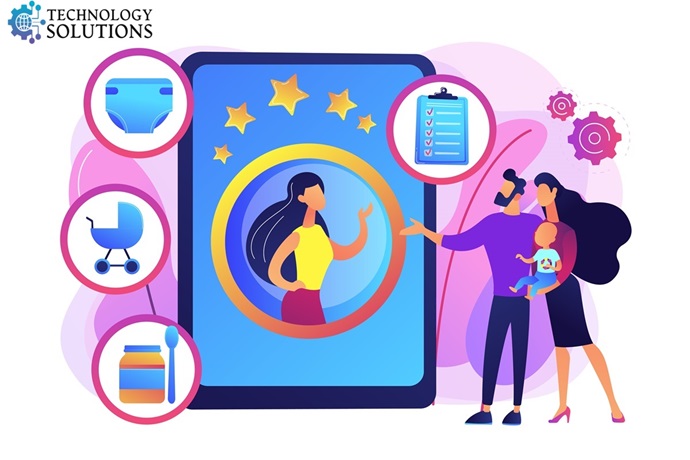In today’s highly competitive market, customer engagement is no longer just a buzzword—it’s a critical factor that can make or break a business. Companies that successfully engage their customers tend to have higher retention rates, stronger brand loyalty, and ultimately, better financial performance. One of the most effective ways to enhance customer engagement is through personalized solutions tailored to meet the unique needs and preferences of each customer. As consumers increasingly expect brands to understand and cater to their individual desires, businesses must leverage personalized strategies to foster deeper connections and drive long-term success.
The Importance of Personalization in Customer Engagement
Personalization is the process of creating tailored experiences and communications that resonate with individual customers based on their behaviors, preferences, and interactions with a brand. In an era where consumers are inundated with marketing messages, personalization stands out as a key differentiator. It’s not just about addressing customers by their first name in an email—it’s about delivering relevant content, products, and services that align with their specific needs.
Research shows that customers are more likely to engage with brands that offer personalized experiences. According to a study by Epsilon, 80% of consumers are more likely to make a purchase when brands offer personalized experiences. Furthermore, personalized strategies can increase customer satisfaction and loyalty, as customers feel valued and understood by the brands they interact with.
How Personalized Solutions Improve Customer Engagement
- Tailored Content and Recommendations
One of the most effective ways to personalize the customer experience is through tailored content and product recommendations. By leveraging data analytics and machine learning, businesses can analyze customer behaviors, such as browsing history and past purchases, to provide personalized recommendations that align with their interests.
For example, an online retailer can use personalization algorithms to suggest products that complement a customer’s previous purchases, or a streaming service can recommend movies and shows based on the user’s viewing history. These tailored suggestions not only enhance the customer experience but also increase the likelihood of repeat purchases and longer engagement times.
- Customized Communication
Effective communication is at the heart of customer engagement, and personalization plays a crucial role in making these interactions meaningful. Personalized communication goes beyond generic messages by addressing customers’ specific needs and interests. This can be achieved through personalized email campaigns, targeted social media ads, and even customized in-app messages.
For instance, a brand might send an email offering a discount on a product that a customer has recently viewed but hasn’t purchased yet. Or, a fitness app could send personalized workout plans based on the user’s fitness goals and activity levels. By delivering relevant and timely messages, businesses can keep customers engaged and encourage them to take action.
- Personalized Customer Support
Customer support is another critical area where personalization can significantly improve engagement. Customers appreciate when brands offer support that is tailored to their specific issues and needs. Personalized customer support can be delivered through various channels, such as chatbots, live chat, or phone support.
For example, a chatbot can use previous customer interactions and purchase history to provide instant, personalized assistance, while a customer service representative might reference past interactions to offer more informed and relevant support. This level of personalization not only resolves issues more efficiently but also leaves customers feeling valued and appreciated, thereby strengthening their relationship with the brand.
- Loyalty Programs and Incentives
Loyalty programs are an excellent way to engage customers and encourage repeat business, and personalization can make these programs even more effective. By analyzing customer data, businesses can create personalized loyalty programs that offer rewards and incentives based on individual preferences and behaviors.
For instance, a coffee shop chain might offer a personalized reward to a customer who frequently orders a particular drink, or a clothing retailer might provide a discount on a customer’s favorite brand. Personalized loyalty programs not only incentivize repeat purchases but also make customers feel recognized and valued for their loyalty.
Implementing Personalized Solutions: Best Practices
To successfully implement personalized solutions and improve customer engagement, businesses should follow these best practices:
- Leverage Data Analytics
The foundation of effective personalization is data. Businesses must collect and analyze customer data to understand their behaviors, preferences, and pain points. This data can be gathered from various sources, including website interactions, purchase history, social media activity, and customer feedback. By leveraging advanced analytics tools, businesses can gain valuable insights that inform their personalization strategies.
- Segment Your Audience
Audience segmentation is essential for delivering personalized experiences. By dividing customers into segments based on factors such as demographics, behaviors, and preferences, businesses can create targeted marketing campaigns and personalized offers that resonate with each group. This approach ensures that the right message reaches the right audience at the right time.
- Use Automation and AI
Automation and artificial intelligence (AI) are powerful tools that can enhance personalization efforts. AI-driven algorithms can analyze large datasets to identify patterns and predict customer behavior, enabling businesses to deliver personalized recommendations and content in real-time. Automation can also streamline personalized communication, ensuring that customers receive timely and relevant messages without manual intervention.
- Test and Optimize
Personalization is not a one-size-fits-all approach. It’s important for businesses to continually test and optimize their personalized strategies to ensure they are effective. A/B testing, customer feedback, and performance metrics can provide valuable insights into what’s working and what’s not, allowing businesses to refine their personalization efforts and maximize customer engagement.
Conclusion
In today’s competitive landscape, personalized solutions are key to improving customer engagement. By offering tailored content, customized communication, personalized customer support, and targeted loyalty programs, businesses can build stronger relationships with their customers, increase satisfaction, and drive long-term loyalty. As technology continues to evolve, the possibilities for personalization will only expand, offering businesses even more opportunities to connect with their customers on a deeper level. Embracing personalized solutions is not just a strategy for success—it’s a necessity for staying relevant in a customer-centric world.

